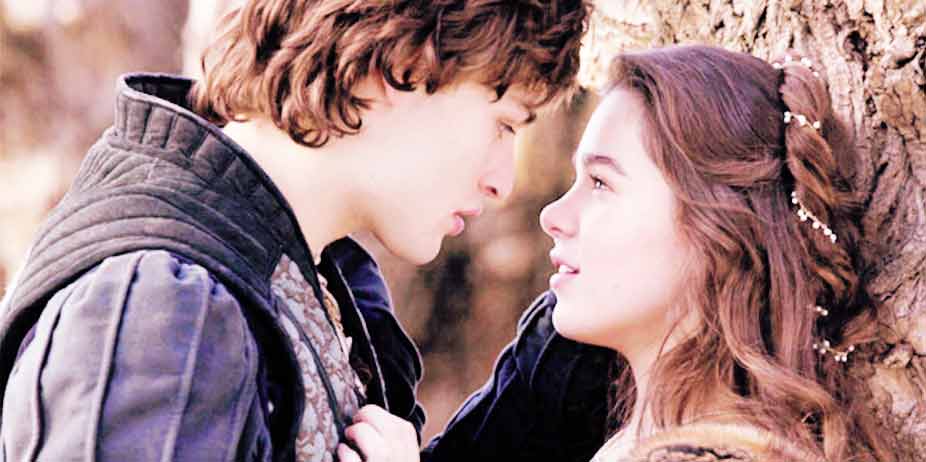Romeo and Juliet (2013)
Julian Fellowes took an immense risk in adapting one of Shakespeare's plays for modern audiences; in doing so, he tones down the original language a bit to make it more easily understood by non-Shakespeare fans, risking the ire of the scholars. I've always enjoyed the original playwright's stories but not his prose, so these alterations didn't bother me and, if anything, made the film a more enjoyable experience.
A brutal feud has existed between the Capulets and Montagues for as long as anyone can remember. The king has grown tired of constant brawls in the city streets and forbidden the families further violence under pain of death. This alone prevents Romeo (Douglas Booth) from being thrown out when he sneaks into the Capulet masked ball, hoping for a glimpse of the woman he loves. Instead, he is captivated by Juliet (Hailee Steinfeld), the only daughter of his family's sworn enemy. She is just as in love with him by the end of the evening.
Despite her father (Damien Lewis) wanting her to marry a wealthy visiting lord, Juliet plans a secret marriage to Romeo with the assistance of her nursemaid (Lesley Manville). Romeo likewise seeks a conspirator participant in the local friar (Paul Giamatti), but their desire for happiness and their hope that their union will put an end to the feud is thwarted through an unexpected act of violence that changes all their lives forever.
For all the complaints about the modernization of the language (don't worry, unless you have the original memorized you won't notice the difference) the film itself is a masterpiece. Beautifully cast and wonderfully costumed, its sets and grandeur tell as much of a story as the plot. I've always found it difficult to enter into this story but this time around it sucked me in and kept my attention, even though like everyone else, I knew the ending from the start. Here and there Fellowes throws in a few lines, some of which raise interesting questions about innocence and intentional sin, but the poetic nature of the play is kept intact. It is treated less absurdly than seriously, as both a story of star-crossed lovers and a father's desperation to see his family line continue through his daughter's advantageous marriage. Different villains emerge and retreat throughout, but mostly we see young love through Romeo's eyes and hear wisdom from the mouth of the friar.
The casting of everyone is sublime -- although Giamatti nearly steals the show as the wise but romantic friar, whose magnificent plans are all undone through a novice's misunderstanding kindness. Manville is a wonderful nurse, ranging between selfishness and wholehearted adoration for her youthful charge, and Lewis at first makes us love his Lord Capulet and then hate him. The young set have a wonderful chemistry, as friends and enemies, and are a likable bunch all in their own way. Alas, it has no happy ending -- and never will, but that is rather the point, for its message is poignant: that love can heal hate.
Sexual Content:
A young married couple kiss and undress one another; minor innuendo.
Language:
Mild abuses of God's name ("Oh, God!").
Violence:
A father shakes his
daughter and threatens to slap her; several people
are stabbed and killed (no blood).

